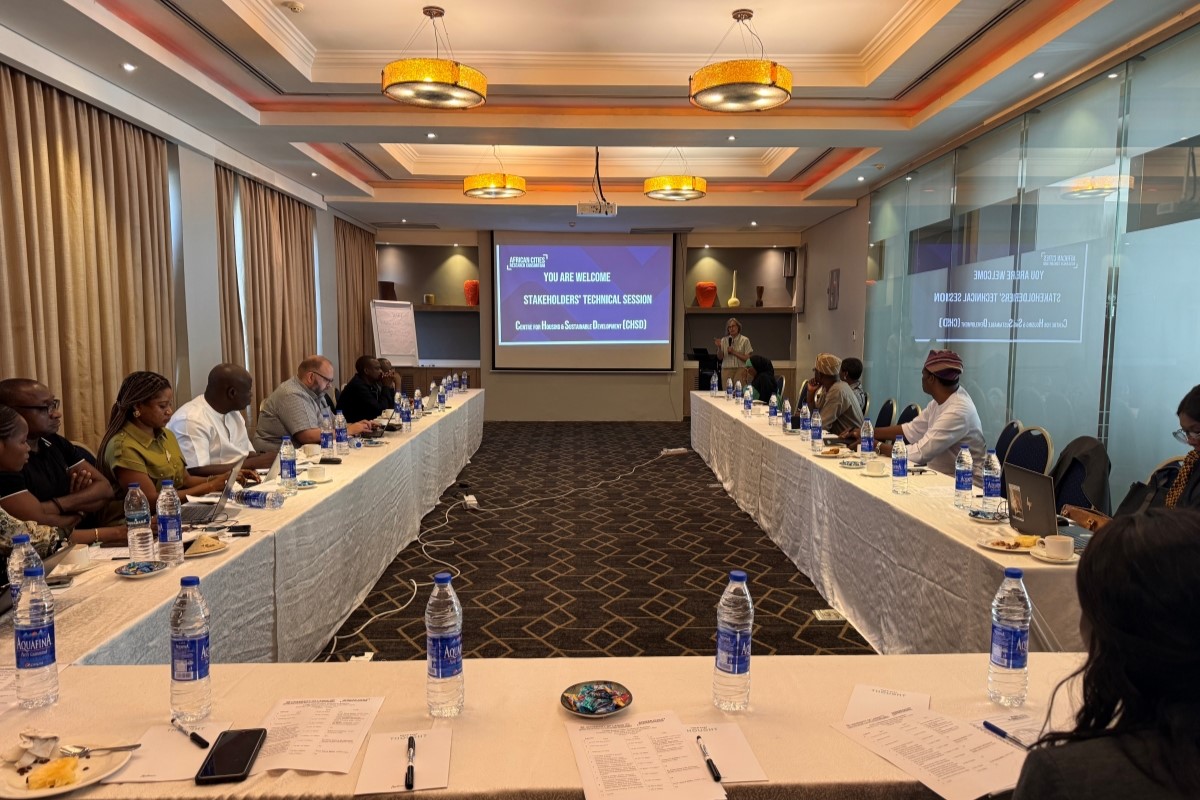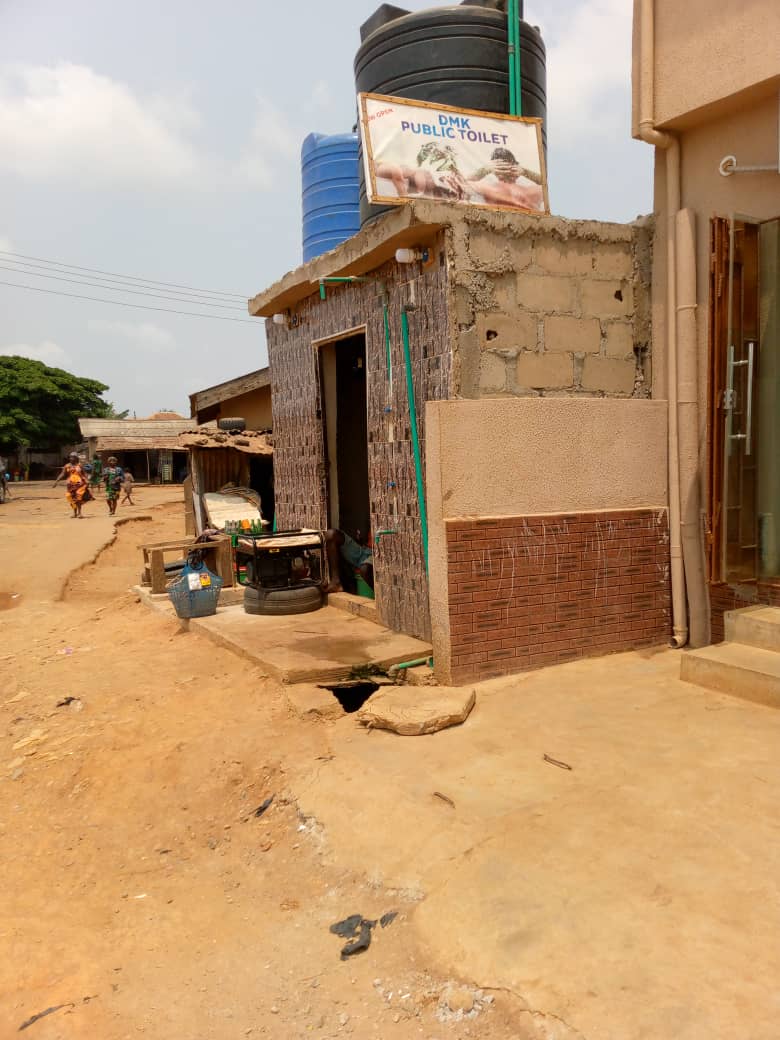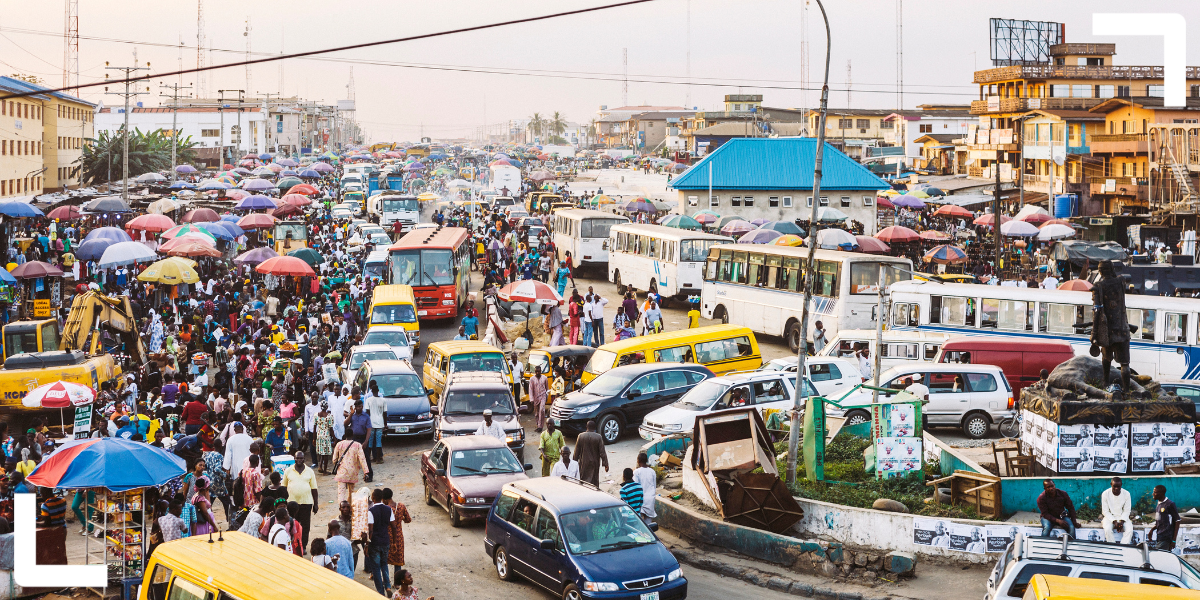By Temilade Sesan, Taibat Lawanson and Ismail Ibraheem
As the old saying goes: all politics is local. In Lagos and elsewhere, political dynamics manifest at various levels – the committee, the community, and the city – and often shape the degree of urban transformation that is possible.
As urban researchers and practitioners invested in the vision of fostering inclusive cities across Africa, we ignore the political realities of our respective contexts at our own peril. Understanding the multi-layered political milieux within which urban settlements and systems function, and using this knowledge to catalyse urban reforms and effective public policy engagement, is our goal as the ACRC Lagos team.
Harnessing politics to drive progress
The materiality of politics was on display during a stakeholder dialogue session hosted by the team in Lagos this February. The stakeholder session, presided over by ACRC CEO Diana Mitlin, was one of a series of high-profile engagements convened to facilitate the uptake of research outputs by political/policy actors. This is in line with ACRC’s overarching objective of realising sustained progress on difficult urban development issues through the workings of strengthened reform coalitions.
The session featured presentations on action research projects being developed by in-city researchers in the areas of safety and security and flood risk mitigation, as well as water, sanitation and hygiene (WASH) in informal settlements across the city. The technical presentations were followed by robust interventions from the stakeholders in attendance (drawn from academia, civil society, grassroots movements and government agencies), culminating in rich discussions around the conditions for successful and sustained implementation of urban development initiatives in our challenging city context.

Participants at the ACRC Lagos stakeholder dialogue event in February. Photo credit: Temilade Sesan
From “what?” to “how?”
However, what emerged as most interesting for us was how abruptly the conversation around pro-poor development – limited in this context to projects centred around informality – veered from the “what?” (highlights of the research plans presented) to the “how?” (addressing the very real challenges of conflicting interests and preferred approaches by various stakeholders in the development space).
The bone of contention was how best to engage with government actors. One group maintained that the way to get the government to prioritise development in informal settlements is to confront them with hard, empirical evidence from the work of engaged scholars and activists working with communities. But the other group preferred a more conciliatory approach, stating that confrontational approaches invariably alienate government actors and further strain the already complicated relationship between the “gown” (academic institutions) and the “town” (the rest of society). Adopting a more middle-of-the-road stance, the government stakeholders in attendance presented the state as a rational actor and suggested that either approach could be appropriate, depending on the situation at hand.
As it relates to Lagos, the confrontation vs conciliation debate is likely to keep raging, especially when we consider the fact that government is a behemoth. Lagos state government alone has over 168 ministries, departments and agencies (MDA), including 22 ministries. When it comes to the development question, there are many different contexts and indeed different ramifications to the implications of government decision making. Putting the conversation into perspective, Diana Mitlin pointed out that it is the feeling of powerlessness that drives otherwise repressed groups to agitate and confront the state where all else has failed. Tempers are wont to flare because the stakes are high for citizens whose lives are impacted by government action or inaction. In any case, as the grassroots activists who have worked most closely with communities pointed out, confrontational tactics have not yielded much by way of progress for the people. The question then remains: what does work for the people?
What emerged from the stakeholder discussion as being most productive to pursue are concrete development wins for informal communities and under-served groups. And when we think about conflicting interests and approaches, this is where melding sound technical interventions with constructive political engagement becomes important.
The power of proposition
What we are realising on the ACRC Lagos team is that researchers, as knowledge brokers, need to go beyond “blue sky” or idealistic research and push for a paradigm shift – what Diana Mitlin referred to as harnessing the power of proposition. In other words, rather than problematising or opposing existing systems as we often do, we need to put forward alternative solutions while bearing in mind the political nuances at play.
In practice, this means that researchers will propose interventions aimed at filling specific innovation gaps identified through rigorous research, test those interventions by implementing relatively small community-based projects, and iterate based on the learnings from those projects. Crucially, all of this activity needs to link to a broader reform agenda, lest the gains be limited to pilot projects in marginal communities – a trend that has bedevilled the field of development for a long time.
For real and scalable impact, the key, we are finding, is to understand the scale at which reform can most realistically be achieved and sustained within the ambit of prevailing political dynamics in the city. Bearing in mind that political dynamics are multi-scalar, this requires us to identify the most potentially responsive set of stakeholders – what we have come to refer to as legitimate constituencies – for particular domain-context combinations, and to doggedly engage these stakeholders in coalition-building efforts.

Communal sanitation infrastructure at Okerube. Local reform coalitions centred around women-led WASH committees can improve service delivery to residents. Photo credit: Adeleke Adekunle
The questions we are taking forward as a team working in an exclusionary political city context include:
- What actors and alliances are needed to drive and deliver change in different contexts?
- At what scale (the local committee, the community or the city) is the change we seek politically feasible?
- And how can reform coalitions, constituted at any of these scales, function as a force for catalysing and sustaining change for the majority of informal-settlement residents?
To take the example of Okerube, the community in Alimosho local government in which our proposed WASH project is situated, the potential reform actors we have identified include: women-led water committees working at the community level; local government officials, especially in light of the recent restoration of their constitutional autonomy (at least in principle) by the federal government; and champions at the district/city/federal levels who are keen to domicile their political influence in their home bases.
This graduated approach to constituting reform coalitions is opening up new, inclusive spaces for dialogue and action. It also provides a fruitful alternative to the stalemate that often results from the confrontation vs conciliation debate.
This denotes a process whose meaning can be captured by a range of terms that are increasingly shaping our thoughts and actions as urban researchers and practitioners: collaboration, co-learning and co-production. After all, we as ACRC are not starting this journey from scratch. We are fortuitously positioned to mobilise stakeholders and build alliances as we keep pace together on the road to the urban transformation of our beloved city.
Photo credits: peeterv / Getty Images (via Canva Pro). Street market in Ikorodu district, Lagos.
Note: This article presents the views of the authors featured and does not necessarily represent the views of the African Cities Research Consortium as a whole.
The African Cities blog is licensed under Creative Commons Attribution-NonCommercial-NoDerivatives 4.0 International (CC BY-NC-ND 4.0), which means you are welcome to repost this content as long as you provide full credit and a link to this original post.


